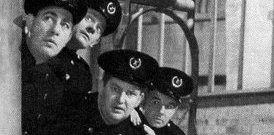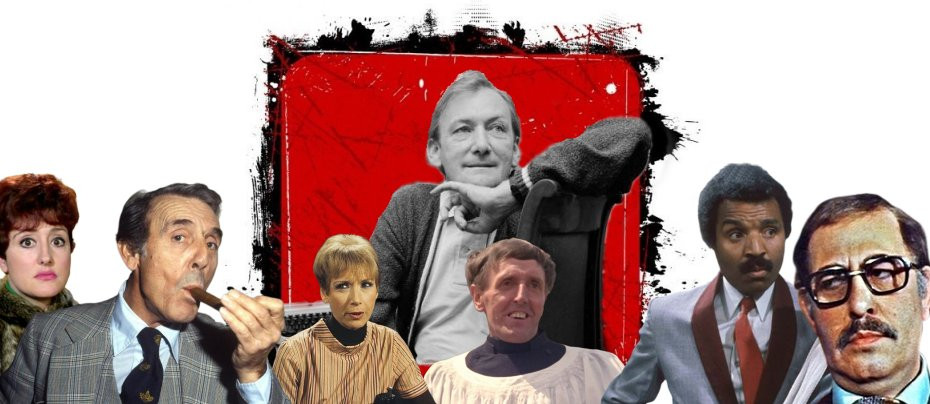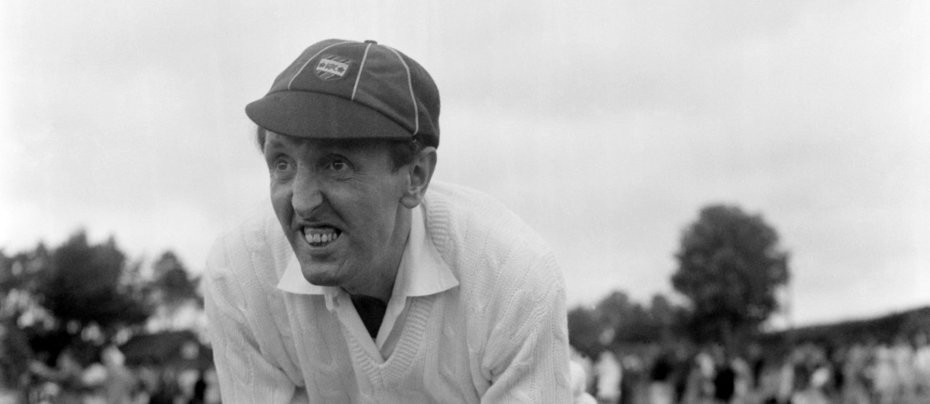
Cardew Robinson
Clad in a striped school cap with a long scarf draped about his scrawny neck, tall, gangly, with protruding teeth once described as “a double row of tombstones hanging out to dry”, the cheerfully gormless Cardew Robinson, whose career was rooted in the music hall and Gang Shows, became a familiar voice on radio and a familiar face on television from the 1950s until the 1990s.
Born in Goodmayes, Essex, on 14 August 1917, Douglas John Cardew Robinson was educated at Harrow County School, during which time he appeared in the school concerts. Already touching six feet tall, and as skinny as a garden rake, his appearance alone was enough to win the laughs of his audience.
His early ambition was to be a writer, inspired by his love of the tales of Frank Richards, featuring Billy Bunter of Greyfriars, and the weekly magazine The Gem, with the adventures of Ralph Reckness Cardew of St Jim's, he wrote for the school magazine, The Gaytonian, using the pseudonym Hotbreaks. On leaving school he took a job with a local newspaper, but shortly after joining it closed down.
Remembering how much he enjoyed performing at school, Robinson looked through the ads in The Stage newspaper and saw one for a touring variety act known as Boganny’s Crazy College Boys. One look at Robinson was enough to convince Boganny to sign him up on the spot. Robinson took over from a small boy and was given the same costume to wear. “That will look very funny on you, so you can be the comic,” said Boganny. The company toured the country, sometimes performing in multiple venues on the same night. In May 1934 they opened at the Lyric Theatre, Hammersmith, dashed over to the Balham Hippodrome for two more houses, and rushed back to Hammersmith for the second house. They weren’t always successful though, and one particular night they had to do a moonlight flit from digs as they didn’t have the money to pay for it. As he was climbing out through a window, Robinson made the decision that he’d be better off in the legitimate theatre and joined a touring repertory company.

When the Second World War broke out, Robinson joined the RAF. He was stationed at Uxbridge which, in 1941, was visited by Ralph Reader, the producer/entertainer/songwriter who had formed the pre-war Boy Scout Gang Shows and now organised the RAF Gang Shows. Robinson auditioned and was immediately posted to the Gang Show. They played at RAF camps all over the country, and after ‘D’ Day they visited Normandy, eventually touring through Belgium and Holland.
After demob, Robinson continued his association with Ralph Reader and was given his own spot as a stand-up comedian. He developed a character of his own, Cardew the Cad of the School, which became a hit with the audiences. He also played the Cad character on radio. Listeners to the BBC's popular Variety Bandbox became familiar with his character reading out a weekly bulletin of school reports: 'Here is the news from St Fanny's and this is Cardew the Cad reading it.' His character had become so popular that he now featured in a comic strip in the children’s publication Radio Fun. Becoming a comedy favourite by the 1950s, Douglas formally changed his first name to Cardew.
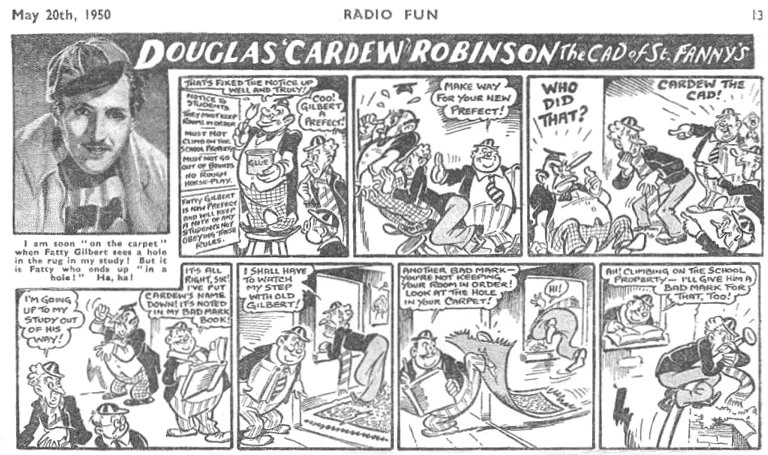
Robinson had previously appeared very briefly in Ghost Tales Retold, a quota-quickie which has since disappeared without trace. In 1948 he appeared, uncredited, in A Piece of Cake, an off-beat 55-minute movie that also featured Jon Pertwee (Doctor Who, Worzel Gummidge), Laurence Naismith (The Persuaders), Harry Fowler and Sam Kydd. There then followed two films in which he played his celebrated ‘Cad’ character. The first was a short comedy (44 minutes) titled Calling All Cars, in which Robinson co-starred with Spike Milligan, and Fun at St Fanny’s in which Robinson was very much the film’s star.
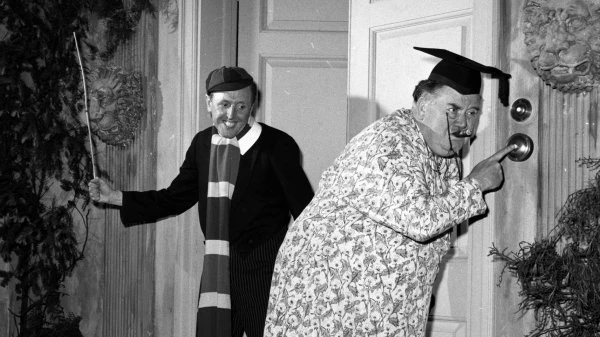
In Fun at St Fanny’s 25-year-old Cardew is still at school, run by a large headmaster who lives and bets off the income that comes from Cardew's uncle's will. Of course, the headmaster and the matron don't let Cardew leave school. His co-stars in the film include Fred Emney, Miriam Karlin (The Rag Trade), Paul Daneman, Gerald Campion (Billy Bunter), Peter Butterworth, Stanley Unwin, Marianne Stone, Anthony Valentine (Callan), Vera Day and Ronnie Corbett.
By the 1960s Robinson had successfully made the transition from variety and radio into stage, films and television. On the small screen he appeared in episodes of Sykes and A…, Hugh and I, Dixon of Dock Green and The Avengers. He had a regular role in Firecrackers. He also appeared in an episode of Hancock's Half Hour titled The Reunion Party in which Hancock holds a reunion of his old Army friends. Robinson was the only one who appeared not to have become staid and boring, but when he took off his scarf, it was seen that he had become a vicar. On stage he was in the production of Camelot in London in 1964, playing King Pellenore in 650 appearances.
He appeared in just one Carry On film, but it was one that led to one of the franchise's best-remembered lines. In Carry On Up the Khyber, he played The Fakir, an Indian mystic who is presenting a show for Kenneth Williams’ character, The Khasi of Kalabar, and Bernard Bresslaw’s character Bungdit In. When the Khasi grows tired of the show, Bungdit In dismisses Robinson’s character with the immortal line “Fakir…Off!”
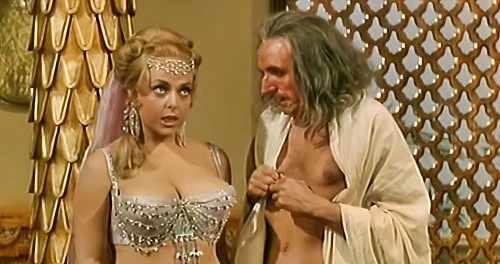
In the 1970s he turned up in cameo roles in a number of British ‘blue’ movies such as What’s Up Nurse! and Come Play With Me. But he was not the only ‘legitimate’ actor appearing in them as stars such as Irene Handl, Alfie Bass, Bob Todd, Rita Webb and John Le Mesurier also appeared. There were more serious parts as well. Robinson was a lawyer with no tongue in Roman Polanski's Pirates and he appeared in Shirley Valentine in 1989.
On Radio, Robinson was best known in Britain for appearances on Does the Team Think? And he created the series You've Got to be Joking, which he also regularly appeared on. He also guested on many television panel shows including Call My Bluff, Looks Familiar and Quick on the Draw. When not performing he wrote comedy scripts for the likes of Peter Sellers, Dick Emery, Dave Allen and the Two Ronnies. His last television appearance was in a 1989 episode of Last of the Summer Wine. In 1992, he died of ischemic colitis at the age of 75.

Roy Hudd, who knew Cardew Robinson personally wrote, ‘I worked with him in farce and, let me tell you, despite his incongruous looks, he could pull birds like no one I’ve ever met! He had wit, enthusiasm and, for the ladies, deadly charm. Missed by his Brother Water Rats (and) the charities he worked so hard for.’
Cardew Robinson exuded charm and eloquence with an air of innocence hiding a mischievous glint in his eye, which ensured he had a steady stream of character parts without ever being seen as a leading man. And that’s why he joins our select group of unsung heroes.
Published on January 16th, 2024. Written by Laurence Marcus for Television Heaven.


